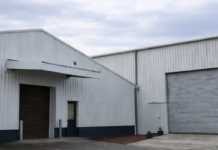
SCOTTISH Engineering is to create an international ‘rail cluster’ as part of a new project to make Scotland a world leader in creating greener railways.
Scottish Enterprise, alongside Transport Scotland, appointed the manufacturer to build the cluster which will link Scottish SMEs with train manufacturers, contractors, academics and research centres.
The 18-month project will be led by Shona Clive, who joins Scottish Engineering from Babcock International Group.
Shona Clive commented, “The Scottish Engineering team is well positioned to identify companies who are the right fit and can bring their own attributes to the table.
“In the current circumstances, this will begin life as a digital project with a number of events bringing the parties together online in the initial months. But the ambition is there within Scottish Enterprise for this to develop into a physical cluster of businesses and research centres in Scotland, collaborating to deliver a world class manufacturing capability in low carbon rail transport.
“It’s a real honour to be involved at this early stage in what promises to be a huge development for rail and engineering in Scotland, as well as creating more environmentally friendly railways for world markets.”
Michael Matheson, cabinet secretary for transport, infrastructure and connectivity, said, “As we continue transition through the Scottish Government’s route map to recovery it is clear we need to do all we can to boost the economy through green initiatives. This new rail cluster will make a significant impact to the rail industry and also Scottish businesses in the longer-term.
“Last month I launched our Rail Services Decarbonisation Action Plan which sets out in detail how the Scottish Government will decarbonise Scotland’s rail services by 2035, in line with last year’s Programme for Government commitment, and contributing towards our commitment to reach net-zero greenhouse gas emissions by 2045.
“Together we have a once in a generation opportunity to not only stimulate innovation within the train manufacturing industry but also to create skilled, sustainable employment in Scotland through stable workbanks. This has corresponding benefits for up skilling the workforce, for more apprenticeships, for the development of talent, and for long-term employment security.
“Working together I am confident that Scotland can and will continue to lead the UK and global march to net-zero.”








